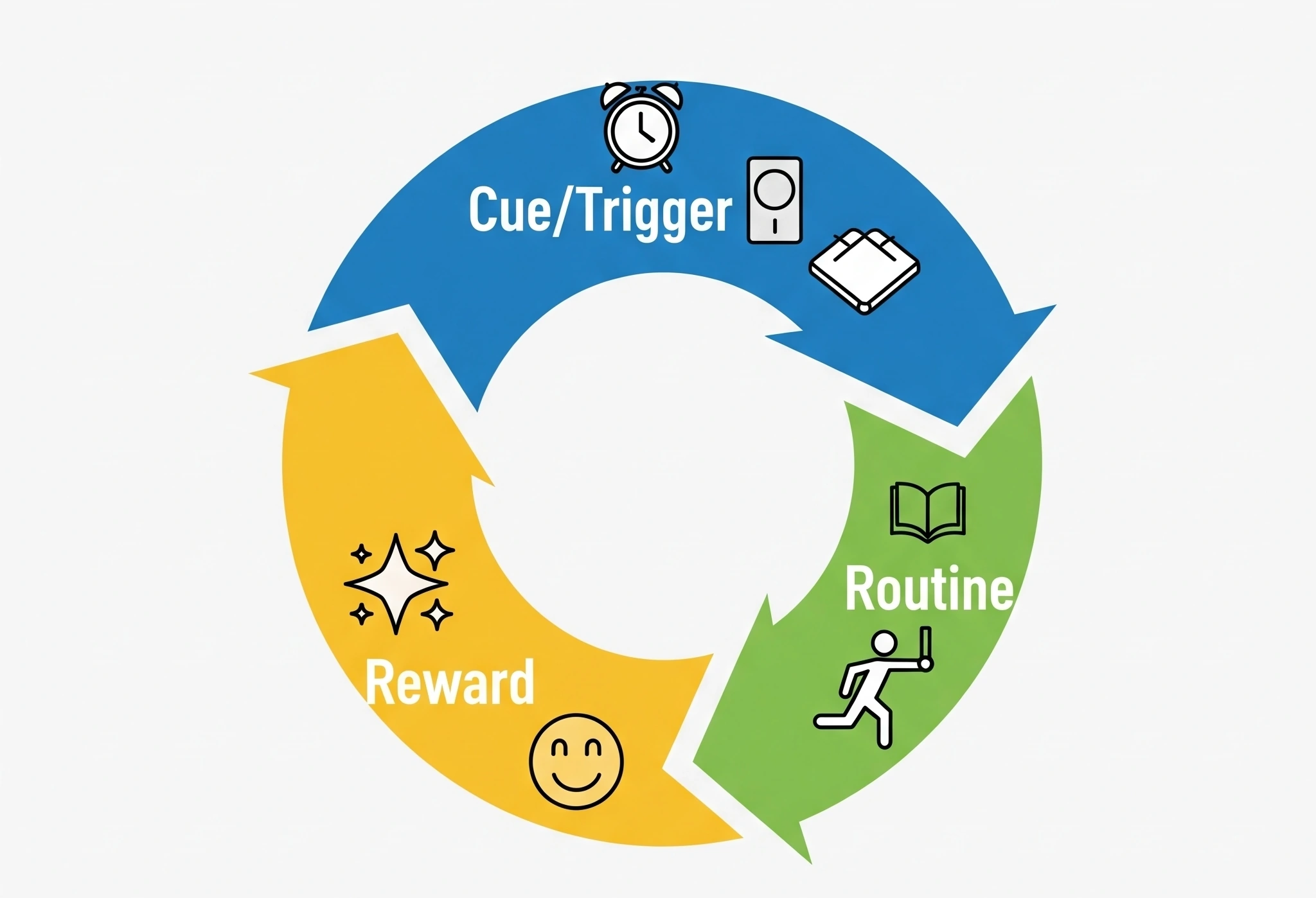Definition and Importance
Habits are the small decisions and actions we repeatedly perform every day. From the moment we wake up to the moment we go to sleep, our days are filled with habitual behaviors. Whether it's reaching for a cup of coffee in the morning, brushing our teeth, or scrolling through social media before bed, these habits shape our lives. But why are habits so crucial for personal development?

The importance of habits lies in their profound impact on our health, productivity, and happiness. They form the very essence of our character and are the foundation upon which we build our lives. Good habits can propel us toward success and well-being, while bad habits can hinder our progress and lead to negative consequences. Understanding and mastering our habits is a powerful tool for personal transformation and achieving our goals.
How Habits Work: The Habit Loop
At the heart of every habit is a simple psychological pattern called the habit loop, which consists of three key elements: cue, routine, and reward. This loop is the blueprint for building new habits and changing existing ones.
-
Cue: The trigger that initiates the behavior. It could be a time of day, an emotional state, a particular location, or the company of specific people that signals your brain to start a behavior.
-
Routine: The behavior itself, which can be physical, mental, or emotional. This is the action you take in response to the cue, which over time becomes more automatic.
-
Reward: The benefit you gain from doing the behavior. The reward helps your brain determine if this particular loop is worth remembering for the future. Over time, this process strengthens the association between the cue and routine, making the habit more automatic.
Understanding the habit loop is crucial for anyone looking to change their habits. By identifying the cues and rewards that drive your behaviors, you can begin to alter or create habits that align with your personal development goals.

Frequently Asked Questions (FAQs)
-
How long does it take to form a new habit? While the popular belief suggests it takes 21 days to form a new habit, research indicates that the timeline can vary significantly depending on the person, the behavior, and the circumstances. On average, it might take more than two months before a new behavior becomes automatic.
-
Can bad habits be changed? Yes, bad habits can be changed, but it requires understanding the habit loop and being intentional about altering it. This often involves identifying the cue and reward that drive the habit and finding a new routine that delivers the same reward.
-
What are some strategies for forming good habits? Some effective strategies include starting small to ensure consistency, focusing on one habit at a time, using reminders or cues to initiate the behavior, and rewarding yourself for progress to reinforce the habit loop.
-
How can I make a habit stick? Making a habit stick involves regular practice and patience. It's important to minimize barriers to the new behavior, make the habit as easy as possible to start, and build a supportive environment that encourages your new habit.
By understanding the essence and mechanics of habits, we can harness their power to make positive changes in our lives. Habits are the tools through which we can shape our destiny, one small action at a time.